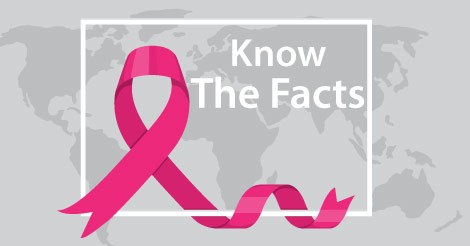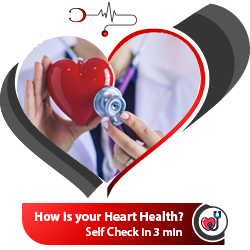Cancer - Causes, Symptoms, Types & Prevention
Cancer is a condition where some of the cells of the body begin to divide uncontrollably and spread into surrounding parts of the body, destroying healthy neighboring tissues. Normally, body cells divide to form new cells to replace old or damaged cells as a natural process. In cancer, new cells begin to form rapidly even when they are not needed. They form growths called tumors. As these new cells continue to divide without stopping, some of these cancer cells break off and through the blood (or lymph) travel to other parts of the body and form new tumors.

Cancer can start almost in any cell of the human body.
Risk Factors for Developing Cancer
- Genetic predisposition or gene mutations
- Use of tobacco
- Certain Infections like hepatitis B and C and human papillomavirus
- Exposure to ultraviolet radiations from sun and other ionizing radiations like x rays
- Environmental pollutants
- Immunosuppressive medicines
Other factors that can contribute include consumption of alcohol, poor diet, lack of physical activity and obesity. The risk of cancer increases significantly with age.
Types of Cancer
There are more than 100 types of cancer, usually named for the organs or tissues where the cancers form. In males, the most common cancers are that of lung, prostate, stomach, colon and rectum. In females, the most common cancers are that of breast, colon, rectum, lung and cervix.
Symptoms of Cancer
Cancer is a disease in which there are not many apparent or pronounced symptoms in early stages and this is the reason mostly cancers are detected when they reach a late stage of the disease.
Symptoms vary according to the location, stage and type of the cancer. Few cancer specific symptoms include abnormal lump, unexplained weight loss, fatigue, change in bowel movements, abnormal bleeding or prolonged cough. All these symptoms can also occur due to other health issues as well.
Stages of Cancer
Stage means the extent to which the disease has progressed like the size of the tumor and if it has spread to the other parts of the body
Stage 0: Cancer cells are present but have not spread to surrounding tissues
Stage I, II and III: Higher the number, more advanced the disease in terms of size of the tumor and invasion of surrounding organs and tissues
Metastasis -
cancer has spread to distant organs and tissues
Screening of Cancer
Screening for cancer can help in early detection of several types of cancers especially that of cervix, colon and rectum. Early detection helps in effective treatment of cancer and ensures better prognosis.
Screening includes:
- General health checkup including checking for cancer signs like lumps
- Laboratory tests like blood tests, pap smear
- Medical Imaging like X ray, MRI, Ultrasound, CT scans
- Tests for gene mutations
- Biopsy - examining abnormal growth cells under the microscope
Treatment of Cancer
The treatment depends on the type and stage of the cancer. Treatment includes radiation therapy, chemotherapy, surgery and target therapy.
Prevention from Cancer
- Avoiding known causes of cancer like tobacco use, radiation exposure etc
- Lifestyle changes
- A diet low in fat and high in fiber, fruits, and vegetables lowers the risk of certain types of cancers
- Vaccination against hepatitis B virus and human papillomavirus
- Screening tests at regular intervals of those who are at higher risk e.g., people who have family history of cancers or who are exposed to ionizing radiations.
- Regular preventive complete body checkup
Early detection through periodic health checkups is an effective tool in catching cancer in its early stages where it is still at a stage where treatment is effectively possible.









